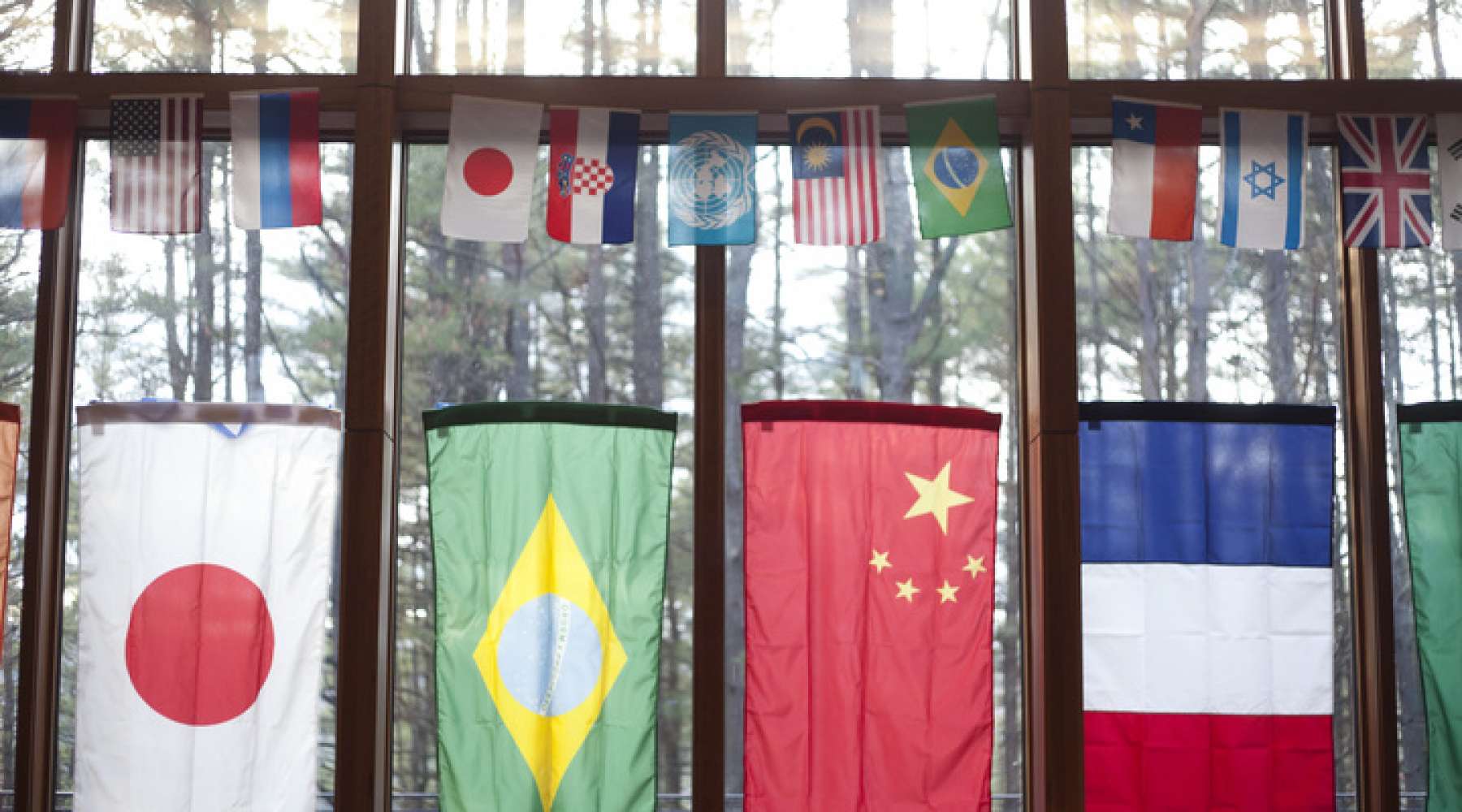

 Francis Barel T’05 is a member of Tuck’s European Advisory Board originally from France. He is PayPal’s business development manager for the Middle East and North Africa. Julian Herman T’06 is a member of Tuck’s Latin American Advisory Board originally from Chile. He is a sloan fellow at the Massachusetts Institute of Technology. They recently spoke at Tuck to offer advice on job searching for international students. Below are highlights of their talk.
Francis Barel T’05 is a member of Tuck’s European Advisory Board originally from France. He is PayPal’s business development manager for the Middle East and North Africa. Julian Herman T’06 is a member of Tuck’s Latin American Advisory Board originally from Chile. He is a sloan fellow at the Massachusetts Institute of Technology. They recently spoke at Tuck to offer advice on job searching for international students. Below are highlights of their talk.
Francis Barel: When you’re an international MBA student looking to take the next step, you have three career options: 1) go for a multinational, large company that can offer you a visa, 2) go for a company that doesn’t generally offer a visa but might make an exception for you, or 3) go home or to a different country. Going home may seem like the easiest option, but there are a few challenges. Most international companies not based in the US are not necessarily used to hiring MBAs—they may not have the right salaries or job functions. For people who want to return home, I recommend that you consider trying to get a job at one of the best companies in the US and gain 2-3 years of experience here. Companies in your home country might hire you more for your American experience than for your MBA or the Tuck brand name.
Julian Herman: My experience was a little different. I went back home immediately after Tuck as I got a very attractive offer to work with a great company in Chile. When selecting a geography, you need to strike the balance between what you bring to the table and what challenges you will face. Example: when you go into consulting, one of the first choices you are faced with is whether to choose your country’s office or the Boston office.
FB: They’ll ask you that immediately when you apply.
JH: For example, if you go the Boston route, you’re basically competing against everybody who has spent their lives in the USA —they went to school here, they have friends and connections and they understand the cultural references. Being able to speak Spanish or Arabic or Mandarin is not going to be a big help. For example, I worked six months in Abu Dhabi, where all the presentations had to be in Arabic, and since I didn’t speak the language, I had to use a translator. It was awkward. If I had spoken Arabic I would’ve been able to interface more fluidly and bring more to the table. Don’t shy away from returning to your home country if you return with one of the big companies in your industry.
FB: Julian has a very valid point. That doesn’t mean you can’t come back to the US after 2-3 years in your home country, because what that means is you bring McKinsey experience, for example, back to the US rather than having to compete as an unknown quantity against people born and raised in New England. You might also want to keep parallel tracks in mind by looking at both US and home companies at the same time. Keep in mind, though, how best you can activate the three levers of country, industry, and position. It might be easier, for example, to stick to the same industry but switch countries and positions rather than trying to switch all three.
FB: One of the biggest challenges an international student faces is competing with Americans. If you’ve come to the US for the first time to attend Tuck, think of it this way: Americans have 25 more years of experience living here than you do. The American education system and culture encourages a self-confidence that you might not have. It’s important to remember though, that you are smart and bring something unique: global knowledge and culture. When we were at Tuck, we really tried to learn from what Americans bring to the table, but it can be an uphill battle. Take, for example, networking. Americans do it naturally—they smile, they are confident, they shake your hand and ask for your card. Don’t feel ashamed to pick up those techniques as you build your network. Americans do such a good job of staying in touch with former colleagues and friends, and you should, too. Yes, it’s easier than ever today with Facebook and LinkedIn, but you should also pick up the phone and meet people in person. Brown bags are so important, too, because you can sit down with people and ask them questions.
JH: Not to mention alumni. The Tuck network is unparalleled but don’t forget that you are part of the larger Dartmouth community, too.
FB: One of the things Americans are great about, too, is when they go into a room they know how to chitchat. That might be something you need to work on. It’s all about establishing contact with the person you are talking to and breaking the ice. It’s so important but so easy to overlook.
JH: For me, the biggest cultural shock coming to the States was this concept of the cocktail/networking event. You go and there’s one person standing there with a drink, surrounded by people just waiting for their moment to approach and talk. You have to learn how to navigate it successfully.
FB: And, after any contact, Americans are great at following up with an email to say “thank you” or “We met last night.” Don’t send an email too fast—or too slow.
JH: If the interviewer walks out the door and immediately receives the email sent from your iPhone, that’s too fast.
FB: Don’t be overbearing or insistent. Tailor your emails, too, especially if the recipients know each other. Last thing: we all have accents. You want to make sure yours is understood, especially if it’s a phone interview. Practice with friends, do mock interviews, and keep perfecting your pitch. It will pay off.
(Photo above by Laura DeCapua)